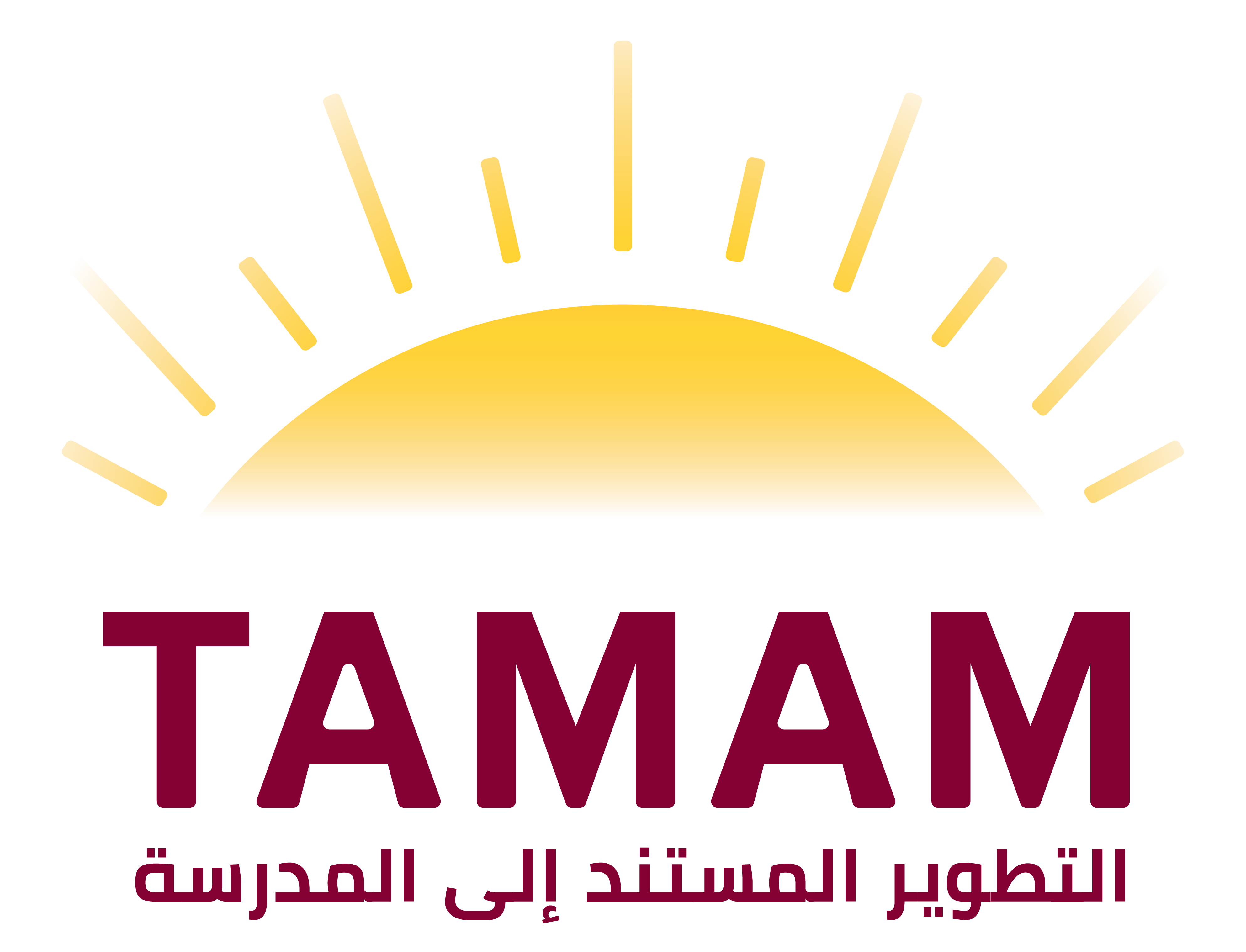There is growing agreement that effective professional learning is enhanced when teachers connect and collaborate with colleagues (Hargreaves & Fullan, 2012; Strahan, 2003). A new paradigm for school improvement based on developing collaborative school structures as a mean for building the school capacity for improvement is emerging (e.g., Di´az-Gibson et al., 2017). Within this paradigm, inter-school collaboration has become increasingly popular as a strategy towards building and sustaining school improvement (Ainscow, Mujis, & West, 2006; Muijs, 2008). The practice of collaboration between schools as part of a new paradigm of school improvement is almost non-existent in the Arab world. The TAMAM professional network is one of the rare educational initiatives in the Arab region to incorporate professional collaboration as a foundation for its vision for developing innovative schools and as a strategy to achieve sustainable school improvement. Currently, TAMAM has an expanding membership of Arab educators and educational institutions that share its vision and goals. This study explores the experience of the TAMAM Jordan Hub, a voluntary network that emerged within the larger TAMAM professional network among 8 private schools in Amman who are members of the TAMAM network. This study uses a qualitative case study research design to understand the participants’ perceptions of professional collaboration and inter-school collaboration and explore the drivers that instigated this type of collaboration among these schools. It also examines the factors that shaped this initiative and the support received (especially from the university-based facilitators) during the initiation of inter-school collaboration as well as the impact of this initiative. The participants in this study were purposefully chosen from the Jordan Hub schools that initiated a joint improvement project (teaching and learning of Arabic language) following the TAMAM model for school-based improvement as the focal activity for their inter-school collaboration. The results mostly affirmed those reported in the literature yet made significant contributions through revealing contextually shaped drivers, as well as offering a framework that details the functions of external facilitators. A key contribution of the study is that university-based researchers and experts have a critical role in facilitating the initiation and the implementation of inter-school collaboration. Namely, they are needed to coach the school teams on how to successfully navigate the structural and cultural demands of implementing the newly adopted inter-school collaboration strategies and the content of their improvement project. Expertise in leading change and the content area the collaborative improvement initiative is targeting are needed to achieve the goals of inter-school collaboration to effectively impact large scale sustainable school improvement.
This site is registered on wpml.org as a development site. Switch to a production site key to remove this banner.
